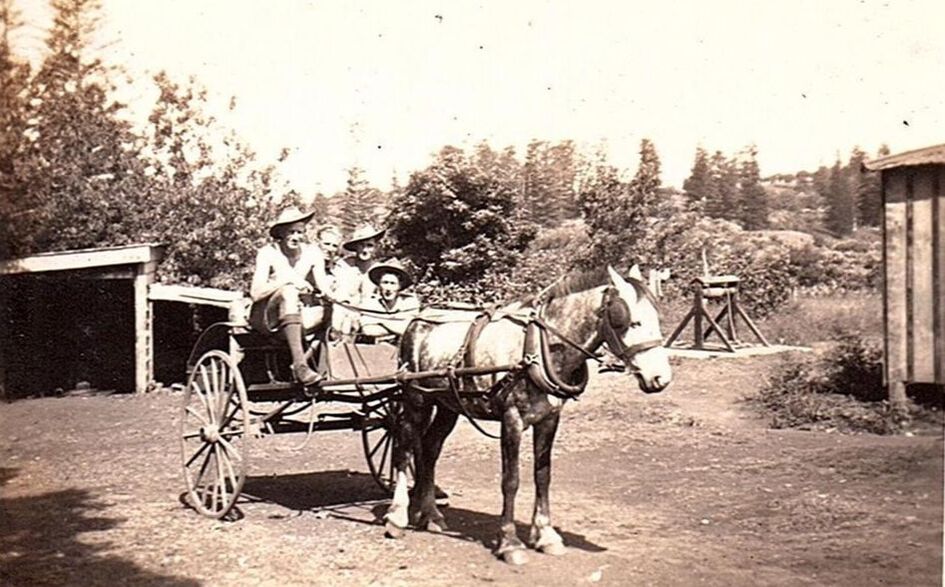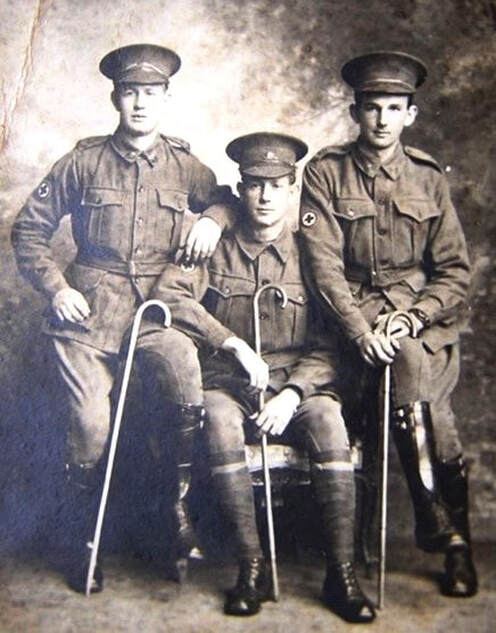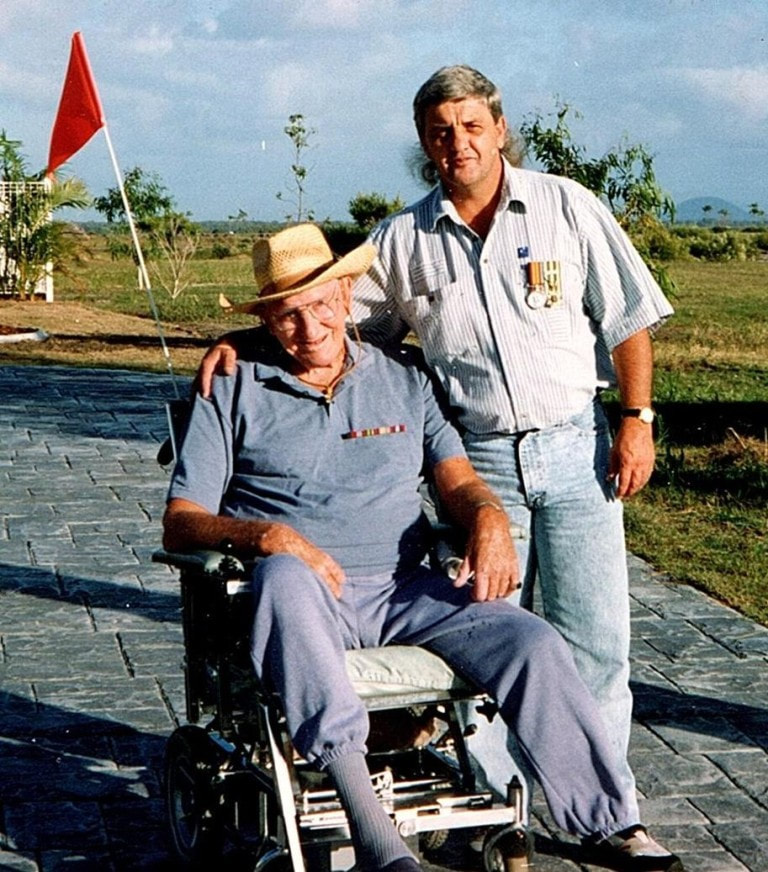Karl lived with his sister, a tyrant, who I became very irate about swimming in a nearby dam, topless men that is. They made a living on a small farm of about 30 hectares, with cows, pigs, a draught horse and a bull, to whom we used to take our cow Basil (yes, a cow named Basil), when the time was right. Basil was named after a previous owner, Basil Davies.
During the second world war, Karl would ride his bike to Bunyip where he trained with the Australian Defence Corp, an early version of Dad’s Army.
Karl would ride his bike into town and go to the pub to have a few drinks with other returned first world war veterans on a Sunday morning. If we visited in the afternoon, we had to be very quiet as he rested. He would take me ferreting and fishing. He gave me 2 shillings (20 cents) to spend at the 1948 Melbourne Show. The only thing he told me about the first world war was that the troops were suffering from severe constipation on the ship bringing them home. I was with Karl when news came through that the Americans had dropped the atomic bomb on Hiroshima. I can’t remember his reaction.
Charlie Johnson was a leader and probably had some rank. Tough as nails and very outgoing, Charlie was the complete opposite of Karl. I used to help him, or thought that I did. He would go to the local pub on Saturday afternoons where he would play cards with other old soldiers, Dinny McIvor and Pop Gurney. As the day went on, they got louder and louder.
We never knew their war stories, or the wounds Karl or Charlie may have sustained. I feel honoured to have met them.
They could have been Anzacs.
Max Tilbury
April 2024e to edit.






 RSS Feed
RSS Feed
